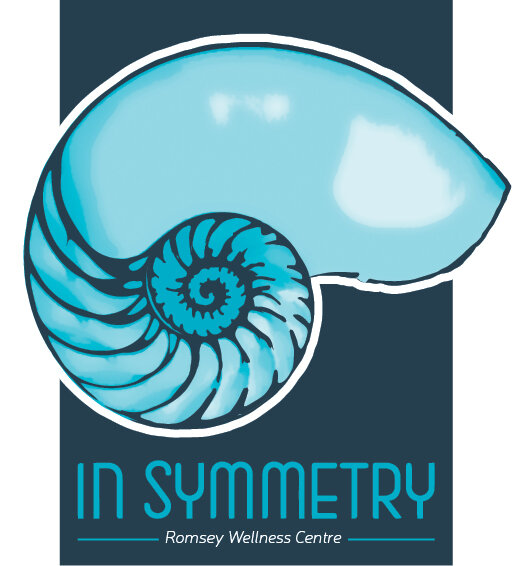HOLISTIC APPROACHES TO MIGRAINES: THE POSITIVE EFFECTS OF ACUPUNCTURE, DIET, AND CHINESE HERBAL MEDICINE
Written by Chris Eddy (Chinese Medicine Practitioner)
Migraines are more than just severe headaches; they are debilitating neurological events that can disrupt daily life. While conventional treatments often focus on pain relief, many people are turning to holistic approaches like acupuncture, dietary changes, and Chinese herbal medicine for more comprehensive management. These natural therapies aim to address the root causes of migraines and provide long-term relief. In this blog post, we'll explore the positive effects of these three holistic methods on migraines.
Acupuncture: Balancing Energy and Reducing Pain
Acupuncture, a cornerstone of Traditional Chinese Medicine (TCM), involves the insertion of thin needles into specific points on the body to balance the flow of Qi (energy). Here's how acupuncture can help with migraines:
1. Pain Reduction: Studies have shown that acupuncture can significantly reduce the frequency and intensity of migraine attacks. The needles stimulate the release of endorphins, the body's natural painkillers, and improve blood circulation, which can alleviate pain.
2. Stress Relief: Stress is a common trigger for migraines. Acupuncture promotes relaxation by regulating the autonomic nervous system, which can reduce stress and prevent stress-induced migraines.
3. Hormonal Balance: Hormonal fluctuations, especially in women, can trigger migraines. Acupuncture can help regulate hormones by stimulating the endocrine system, thereby reducing the likelihood of hormone-related migraines.
4. Reduction of Inflammation: Chronic inflammation is linked to migraine pathophysiology. Acupuncture has anti-inflammatory effects, which can help reduce the inflammatory response that contributes to migraine pain.
Diet: Nourishing the Body to Prevent Migraines
Diet plays a crucial role in managing migraines. Certain foods can trigger migraines, while others can prevent them. Here’s how dietary changes can positively impact migraine sufferers:
1. Identifying Triggers: Common dietary triggers include caffeine, alcohol, chocolate, aged cheeses, and foods containing MSG. Keeping a food diary can help identify and eliminate these triggers from your diet.
2. Hydration: Dehydration is a known migraine trigger. Drinking plenty of water throughout the day can help prevent dehydration-induced migraines.
3. Balanced Nutrients: A diet rich in magnesium, riboflavin (vitamin B2), and coenzyme Q10 has been shown to reduce migraine frequency. Foods like leafy greens, nuts, seeds, fish, and whole grains are excellent sources of these nutrients.
4. Regular Eating Patterns: Skipping meals can trigger migraines due to drops in blood sugar levels. Eating regular, balanced meals can help maintain steady blood sugar and prevent migraines.
Chinese Herbal Medicine: Natural Remedies for Long-term Relief
Chinese herbal medicine uses a variety of herbs to restore balance in the body and treat illnesses. Several herbs are particularly effective in managing migraines:
1. Chuan Xiong (Ligusticum Chuanxiong): This herb is known for its ability to improve blood circulation and relieve pain, making it a popular choice for migraine treatment.
2. Bai Zhi (Angelica Dahurica): Bai Zhi is used to alleviate headaches and reduce sinus pressure, which can be beneficial for migraine sufferers.
3. Gou Teng (Uncaria Rhynchophylla): Gou Teng has calming properties and is often used to treat headaches, dizziness, and hypertension, which are common migraine triggers.
4. Tian Ma (Gastrodia Elata): This herb is effective in reducing pain and calming the nervous system, helping to prevent and alleviate migraines.
5. Combination Formulas: TCM practitioners often use combination formulas tailored to individual needs. For instance, the formula Tian Ma Gou Teng Yin combines several herbs to reduce inflammation, calm the liver, and relieve pain, offering a holistic approach to migraine management.
Integrating Holistic Approaches for Migraine Relief
Combining acupuncture, dietary adjustments, and Chinese herbal medicine can offer a comprehensive and effective approach to managing migraines. Here are some tips for integrating these methods:
1. Consult a Professional: Work with a licensed acupuncturist and TCM practitioner to create a personalized treatment plan. They can help identify the best acupuncture points and herbal formulas for your specific needs.
2. Keep a Migraine Diary: Track your migraines, diet, and treatments to identify patterns and triggers. This can help you and your healthcare providers make informed decisions about your treatment plan.
3. Be Consistent: Holistic treatments often require consistency and patience. Regular acupuncture sessions, dietary adjustments, and herbal medicine intake can lead to si1gnificant improvements over time.
4. Listen to Your Body: Pay attention to how your body responds to different treatments and make adjustments as needed. Holistic approaches are highly individualized, and what works for one person may not work for another.
Migraines can be challenging to manage, but holistic approaches like acupuncture, dietary changes, and Chinese herbal medicine offer promising solutions. By addressing the root causes and focusing on overall well-being, these natural therapies can provide lasting relief and improve quality of life for migraine sufferers. If you’re struggling with migraines, consider exploring these holistic methods to find a balanced and effective approach to your health. Consider giving us a call if you would like to discuss some treatment options and see if we can help.
If you would like to book an appointment with Chris at In Symmetry you can call the clinic on (03) 5429 3610 or book online by clicking the link below.



